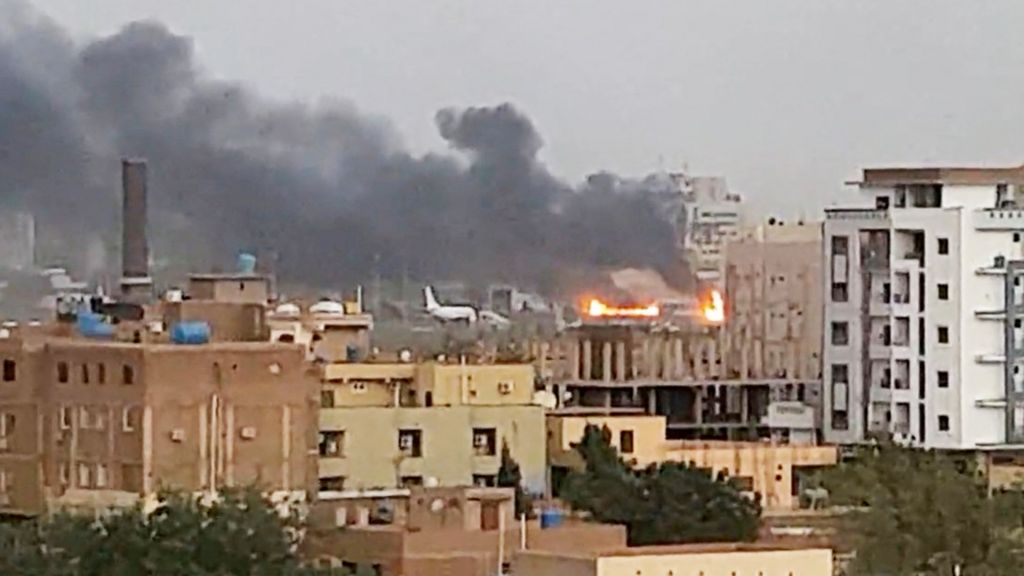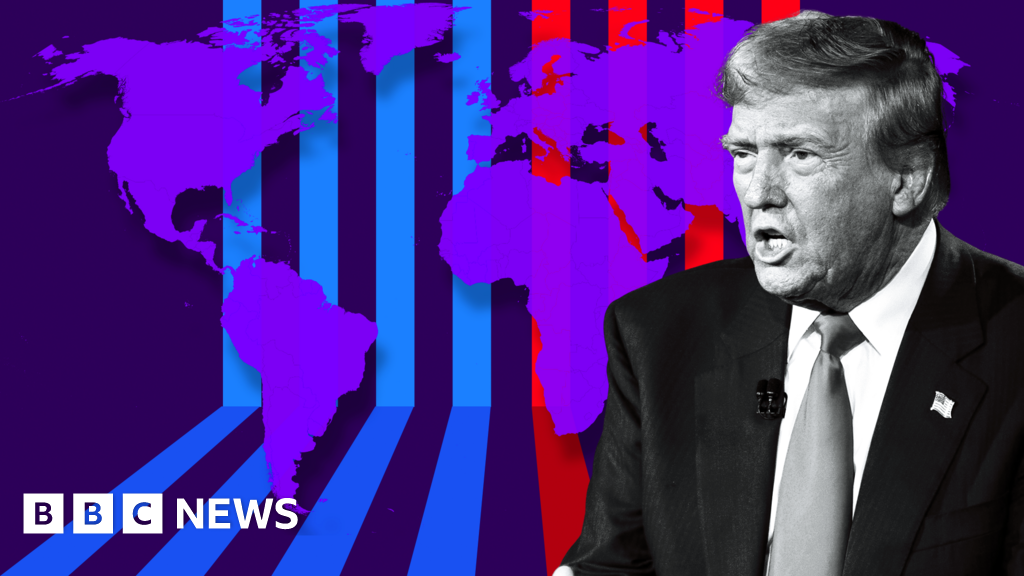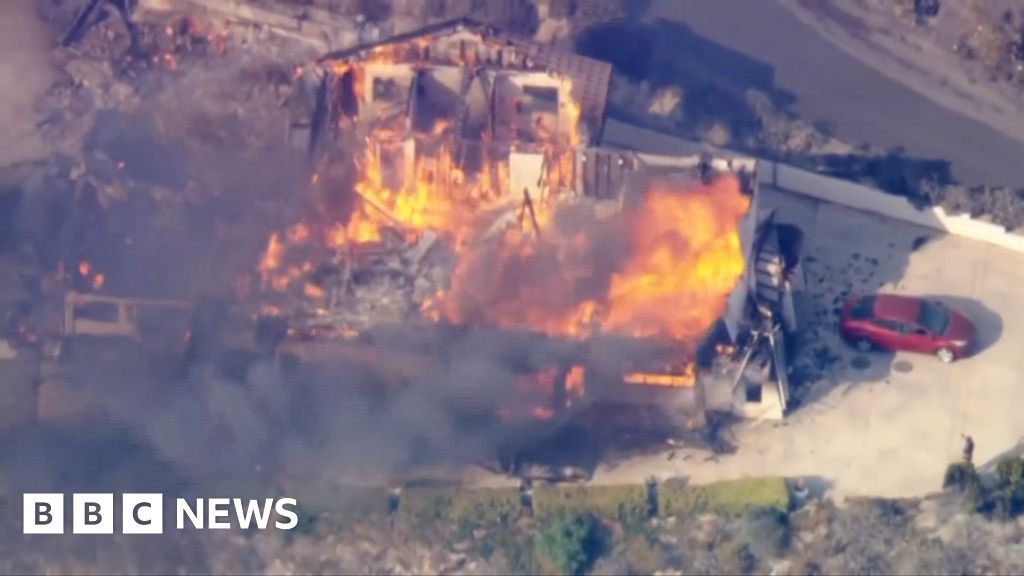ARTICLE AD BOX
 Image source, Reuters/Abdullah Abdel Moneim
Image source, Reuters/Abdullah Abdel Moneim
Smoke rises from the tarmac at Khartoum International Airport, which is close to the city centre
By Jake Horton & Kayleen Devlin
BBC News
Residents in Sudan's capital Khartoum are in the eye of a storm, as gun battles and bombings shake the city's streets. Fighter jets and attack helicopters are flying low overhead. They are trapped in a war zone.
"It sounded like there was a thunderstorm," said one woman as she posted a video from her balcony near the airport in Khartoum at the weekend. The noise came from military helicopters flying low over residential tower blocks.
"We woke up and went outside - there were fighter jets. It just sounded like gunshots. There's just a lot of chaos going on. There was smoke everywhere."
Watch: Attack helicopter flying low over Sudan's Kafouri neighbourhood.
We have combed through dozens of images and pieces of footage from the capital to get a sense of how this is affecting residential areas of the city.
Sudan's army, and the paramilitary group the Rapid Support Forces (RSF), are fighting for power as the country moves towards civilian rule.
The threat to residents is magnified by the particular geography of Khartoum - its key strategic installations, which are being targeted, sit cheek by jowl with residential areas.
One neighbourhood which has come under heavy fire is Kafouri, not far from Khartoum International Airport.
Some of Khartoum's wealthiest residents live there, including the family of Sudan's ex-president Omar al-Bashir. It is also the site of several security installations.
Fighter jet flies low over civilian areas in Khartoum
Khartoum airport is also sandwiched between dense residential areas.
"I can see from my residence smoke coming out from some buildings," one man who lives close by told us. "I can hear blasts, bombs, I can see military planes."
He said a house near where he is staying was hit on Monday morning.
At least 100 civilians have died during this round of violence, says the doctors' union in the vast north-east African country. More than 1,000 civilians are believed to have been injured. The military death toll is thought to be far higher.
Satellite imagery from 16 April over Khartoum shows the scale of the violence - with smoke rising from the airport. Other images show smoke billowing from planes on fire on the airport runway.
Key infrastructure has been hit, including Kobar Bridge, which is close to the airport and connects south and north Khartoum.
One eyewitness told us that this has cut off access to the Universal Hospital Sudan on the north side of the bridge.
The man, who visited Universal Hospital at the weekend, told us: "They asked the sick and injured to leave the hospital at 10pm on Sunday, and the situation was difficult outside.
"They tried a lot to bring in other doctors from other hospitals but nobody can reach Universal Hospital. Ambulances are refusing to transport the injured and dead bodies."
There have been reports that several other hospitals in the capital have either been damaged or evacuated.
A report by Sudan Central Doctors' Committee said the Bashayer University Hospital, in the south of Khartoum had been hit.
A rail facility in the south of the city also appears to have been targeted, with satellite images from 16 April showing plumes of smoke around the site.
Additional reporting by Daniele Palumbo, Joshua Cheetham, Tom Edgington, Richard Irvine-Brown and Mohanad Hashim
We are continuing to investigate video out of Khartoum.

 1 year ago
19
1 year ago
19








 English (US)
English (US)